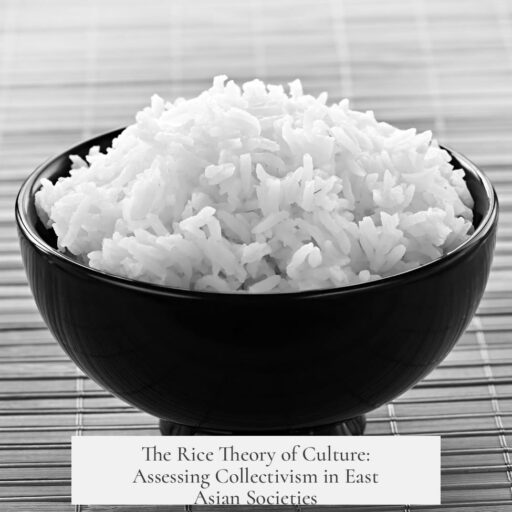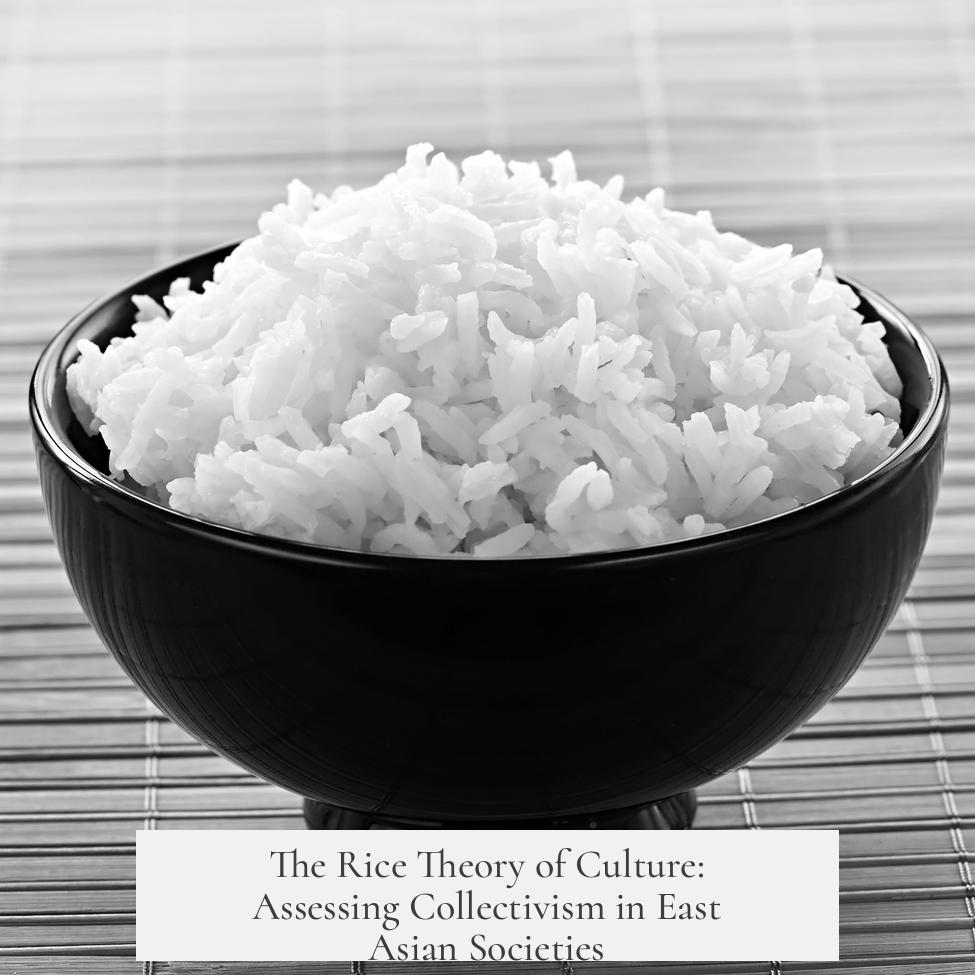The “rice theory of culture” proposes that East Asian societies such as Japan develop collective-oriented behaviors because rice farming requires intense cooperation and coordination. However, this theory exaggerates the role of rice agriculture in shaping culture and oversimplifies the East-West cultural divide.
The rice theory suggests that irrigation-based rice farming demands teamwork, thus promoting social harmony and collectivism. Yet, recent discussions challenge this notion. Milling and wheat were the dominant crops in many parts of East Asia, including ancient China, for over 3,000 of the last 4,000 years. Rice was not always the main crop. This suggests that the link between rice farming and collectivism might not hold across time or regions.
Moreover, the binary of Western individualism versus Eastern collectivism is increasingly questioned. Cultures are complex, and attributing collective values purely to agricultural practices risks oversimplification. Japan and China share many cultural traits due to historical diffusion, but diverse farming practices existed, which complicates any singular explanation.
Geographically, East Asian culture is deeply influenced by China’s long agricultural history. Culture spread across East Asia includes varied crops and social structures. Rice farming’s impact needs to be seen within broader agricultural and historical contexts, not isolated as a sole cause of social behavior.
- Historical data highlights millet and wheat as primary crops for millennia in East Asia.
- Rice’s dominance is more recent and regionally variable.
- East Asian collectivism cannot be solely tied to rice farming demands.
- Cultural traits likely emerge from complex social, economic, and historical factors.
- The East-West individualism-collectivism split oversimplifies cultural diversity.
This evidence urges caution in accepting the rice theory of culture as universally valid. Understanding East Asian collectivism requires more nuanced analysis of history, agriculture, and societal development beyond crop type alone.
How True is the “Rice Theory of Culture”? Unpacking East Asian Collectivism and Rice Farming
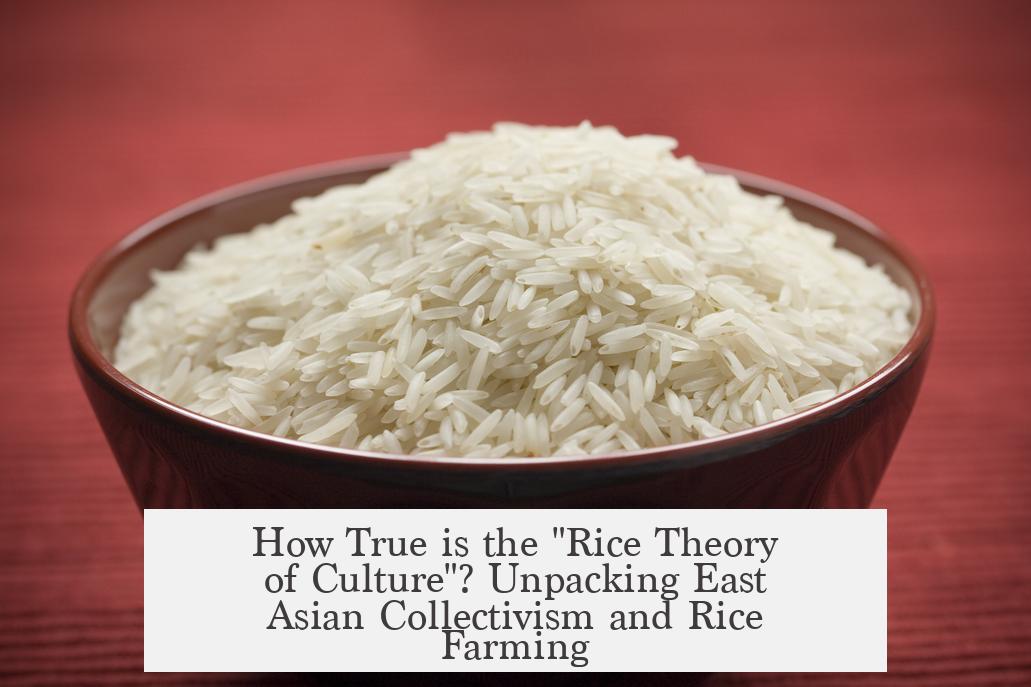
Is the “rice theory of culture” fact or fiction? Does rice farming in East Asia, especially Japan, really sculpt societies into the collectivist mold we often hear about? The short answer: It’s more complicated than you’d expect.
This theory suggests that farming rice, which requires intense cooperation, irrigation work, and shared labor, led to more group-oriented, collectivist cultures in East Asia. Japan, China, Korea — these places are often painted as collectivist because rice farming supposedly forged tightly knit communities working in unison. But hang on a minute. Does the evidence back this up?
Let’s take a deep dive into the layers of this claim, weighing the evidence and unraveling the story.
Challenging the Simplistic East-West Culture Divide
You’ve heard it before: Western culture = individualistic; Eastern culture = collectivist. It’s a neat package, but according to a thought-provoking Reddit post from nearly a decade ago, this neat division might be a little too neat.
Is it really fair to say “West always” equals individualism and “East always” equals collectivism? It turns out culture is nuanced and refuses to be squeezed into binary boxes. This is important because the rice theory of culture rests heavily on this East=collective assumption.
For example, even within one country, behaviors and values differ widely depending on regional history, economy, and social forces—not just crops. Applying a one-size-fits-all explanation can mislead more than enlighten.
Rice: The Star Crop? Not Quite.
Hold your chopsticks! A recent challenge to rice’s starring role in East Asia’s agricultural history shakes the rice theory to its core. An insightful Reddit poster argued that rice was not the dominant crop for the majority of history in the region we now call China.
Historical data suggest that millet and wheat played a more central role for over 3,000 years of the last 4,000 years. Rice farming, while vital for certain eras and regions, wasn’t always the showrunner. Given that Chinese culture heavily influenced much of East Asia, this crops’ timeline complicates the theory.
Why does this matter? If rice farming wasn’t the predominant agricultural practice for such a long span, the idea that it alone shaped collectivist behaviors across East Asia becomes shaky. For millennia, societies were cultivating and depending primarily on other grains with different labor demands—perhaps fostering different social dynamics.
The Cultural Diffusion Puzzle
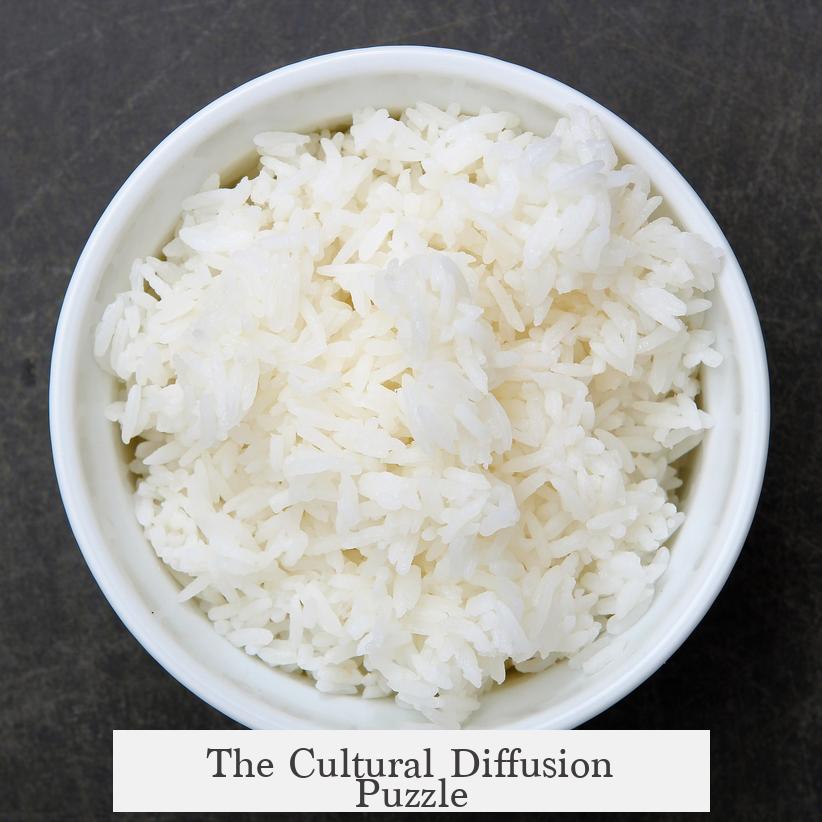
China’s historical cultural influence over East Asia means we can’t isolate Japan’s rice history from a wider context.
When considering East Asia, we must look beyond rice paddies and remember the broader agricultural landscape and cultural exchanges. Japanese rice farming may have indeed supported some collective cooperation, but this idea must be seen alongside the bigger picture involving millet, wheat, and other social factors flowing from China’s diverse history.
Putting It All Together: What’s the Verdict?
The “rice theory of culture” that credits East Asian collectivism to rice farming is more myth than gospel. The theory sways on shaky ground for several reasons:
- The broad East vs. West individualism-collectivism division is far too simplistic to explain rich cultural diversity.
- Rice farming wasn’t always dominant—millet and wheat ruled for thousands of years, calling for a rethink.
- East Asian cultures evolved from a complex mixture of agricultural practices and influences, not just one crop.
This doesn’t mean the role of rice farming in societies like Japan is irrelevant. Rice cultivation did demand collaboration—irrigation, planting timing, harvesting—which likely encouraged cooperative habits in local communities. But blaming an entire region’s cultural orientation solely on rice farming oversimplifies and ignores layers of history and human complexity.
Why Does This Matter? Practical Implications for Understanding Cultures
Understanding the limits of the rice theory helps avoid locked-in stereotypes about “Eastern collectivism.”
For businesses, educators, travelers, and global citizens, it stresses the need to appreciate cultural nuances beyond broad labels. If you assume an Asian colleague or friend is collectivist just because of rice lore, you might miss essential parts of their unique background.
Want to understand cooperation in societies? Look at history, economics, ecology, politics, family structures—rice farming is just one chapter, not the whole book.
A Grain of Humor and a Pinch of Curiosity
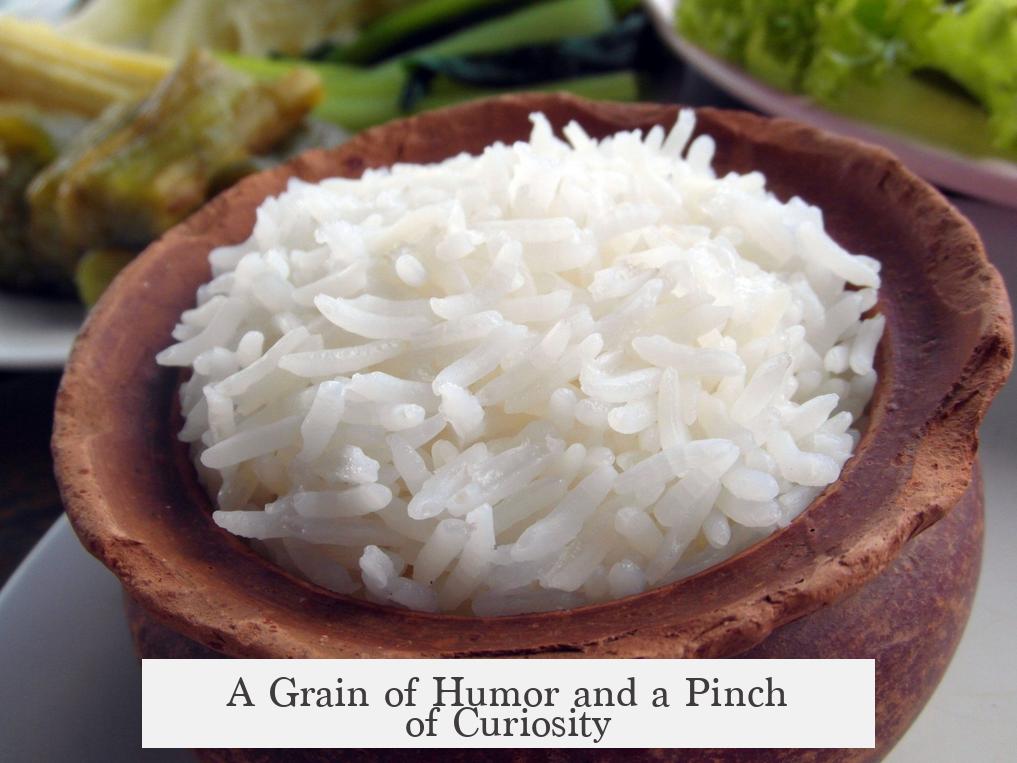
Imagine explaining Japan’s group harmony as “because rice plants like company.” While charming, it’s a little like saying people love jazz because saxophones enjoy saxophone buddies. Culture is sneakier than that.
The rice theory might be a neat metaphor, but real life—and real history—serves a more complex dish. So next time you hear, “East Asians are collectivist because of rice farming,” smile and ask, “Which grain crop are we talking about, exactly?”
Readers, What’s Your Take?
Are you fascinated by cultural origins? Ever heard the rice theory before? Does it align with what you’ve seen or experienced?
Drop a comment or share a story about how you noticed the nuances of cultural cooperation and individuality—inside or outside East Asia.
Sometimes digging into historical details and questioning popular ideas leads to the most interesting conversations. And that’s the real harvest.
For Further Reading
Curious about the historical crops of East Asia and debates around the rice theory? Check this detailed post challenging rice importance on Reddit.
